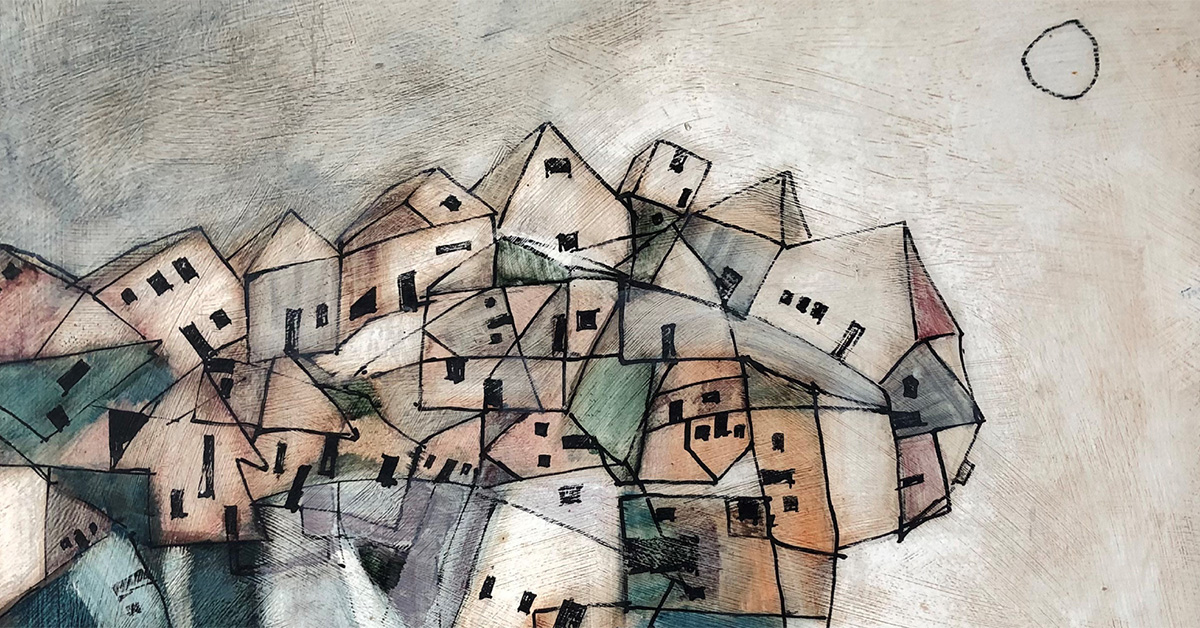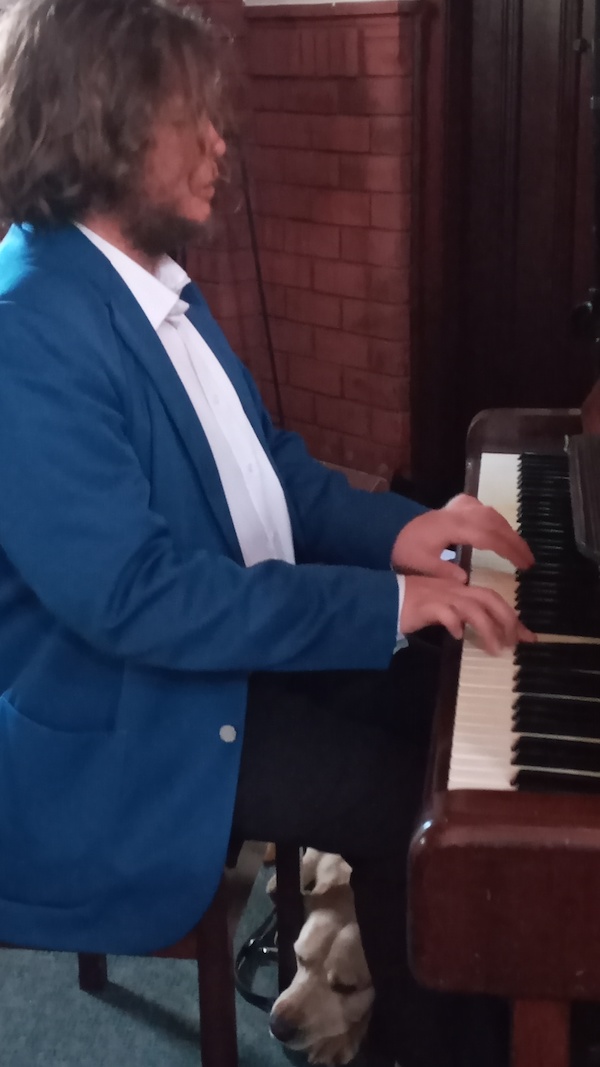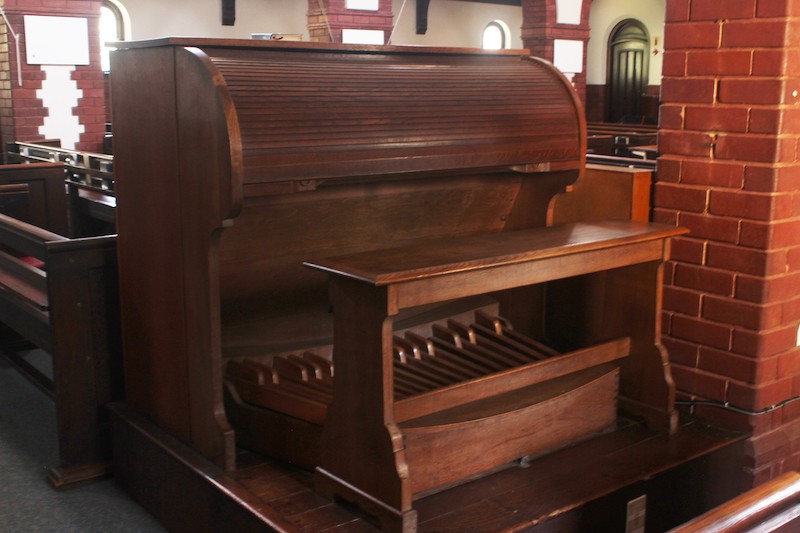

Marit Greenwood is an artist who is drawn to contemplative spirituality. Photographs by the author.

Each of us enters life without significant awareness of what this means or how to engage with it. We find we breathe; we find we are alive. How we respond to this varies tremendously, but to some extent we are all engaged in crafting our way through this circumstance. The perspective from which I share my conversation with Izak Rohan Crafford is that of a personal description by Rohan of how he has crafted and continues to craft his path through the singular circumstance of being alive.
Rohan is a very proper young man: upright in character, specific in his word choice when communicating, frequently clad in trousers, shirt, blazer and tie (even as a modern-day university student). A man of swift gait and resonant voice. He is an assistant lecturer in German literature at the University of Pretoria and is currently studying for a Master’s degree in the same field. His research focuses on the role and function of the blind figures in two 20th-century texts, within the context of the tradition of the literary “blind figure.” He is also involved in the university mentorship programme and is delighted that his mentee is studying theology.
For our conversation, we met at St Wilfrid’s Anglican Church in Hillcrest, Pretoria. Rohan and I, parishioners there, have grown a friendship of shared faith, interest in music (I learn from him), poetry, nature and a fondness for “painting” with words.
What I most keenly associate with Rohan is his love for, and engagement with, music. When asked about his early exposure to it, he explained that, in a departure from the genre of music typically enjoyed by his family, his mom bought a disc of music by Johan Sebastian Bach for him to listen to as a baby, which he “evidently enjoyed.” He vaguely remembers being about three or four years old and still “liking it very much.” Around this age, Rohan was given a children’s piano keyboard which gave him great pleasure: “Experimenting on it … trying to learn melodies…. I didn’t do very impressive things, certainly not, but I did enjoy myself,” he added. These memories linked to music are amongst Rohan’s earliest. Perhaps the life crafting had begun?

He initially was allowed to begin playing the recorder at school, but not the piano. According to one of the teachers there, his hands were apparently “somehow inadequate.” In the school environment he was exposed to classical music – people around him were playing the piano; a music teacher whose classroom was near his (during the foundation phase of his schooling), played Rachmaninov, Beethoven, Mozart. “I was terribly afraid of her, by the way, simply because she could play so well,” Rohan admitted. Piano lessons only began when he was eight years old although his teacher (“a lovely lady”) must have found him somewhat uncooperative: “I didn’t like practising and found the playing of the prescribed terribly restrictive.” He was a member of the recorder ensemble and as of age twelve, a boy treble in the school choir. “It was always great fun to sing higher than the girls,” he commented, adding: “Caused some bullying to occur. But no matter.” At age fourteen Rohan learned from his choir master “a lot of foundational knowledge necessary for the understanding of music,” including musical theory and the various orchestral instruments which the master brought to class for him to handle and try playing. “That was simply wonderful and contributed to my eventual appreciation of the organ.”
Because of timetable clashes, Rohan had to forgo music as a school subject after grade 9, which marked the end of his formal musical education, but certainly not the end of his engagement particularly with classical music. Exploring and “entering into it” has continued unabated, fuelled mainly by doing “an awful amount of research” to find out what he lacks in knowledge regarding any musical matter. His crafting of his musical expression has continued ebulliently as well, particularly after joining the Anglican church, “having a grasp of musical theory when I improvise or compose” Rohan noted, thanks to his choir master. Thus, an aspect of Rohan’s life crafting employed skills gained from his school education.


Rohan virtually breathes music. He is the organist at St Wilfrid’s, and plays the piano here, sometimes playing both alternately during the same church service. Both instruments in this building have severe limitations, and his capacity to coax splendid music from them is impressive. Hymns, and his compositions and improvisations, are filed in his prodigious memory. This memory is, in my opinion, an impressive grace from God towards Rohan.
Rohan is blind.
“What I mostly do is simply memorise my music,” he explained. This process includes thoughtful consideration of the “shape and form” of a piece, and regularly practising it once committed to memory. Listening to Rohan describe this prompted me to think of this approach as a skilled craft of its own, honed to serve his needs effectively. Recalling the basic theme of a hymn, possibly even memorizing its text, is another part of the process aiding the entrenchment of his repertoire into memory.

We explored his relationship with the organ and piano. (He still plays the recorder, but considers it a bit limiting for something like improvising, of which he does much on the other two instruments, with great enjoyment.) For Rohan there is something almost sacramental about engaging with these instruments, “Something dear … that relieves you” he added, pensively. A way of “channelling my experiences … and thoughts into sound,” referring in particular to his penchant for improvising. He elaborated, describing the piano as “taking our burdens upon itself and converting that into something beautiful … Is that not somewhat similar to Christ?” He likened the piano, “a raw instrument” to Jesus’ humanity up to his passion and death; the organ, more “complex, majestically airy, rich in a mysteriously fulgent glory,” to the ascended Christ, with the promise of his return.
When asked about his faith, Rohan indicated that “the Christian faith was at no point in time foreign” to him and he described having a “lively faith” as a young child. However, his internal compass continued to point him towards an expression of faith that was liturgically rich. This had been fed by, for example, listening during his high school days to Bach’s Das Orgelbüchlein: “I remember the longing awakened by that music” he added. That longing was to be in a place of worship where such music was present, there being, for Rohan, a close connection between that kind of music and the presence of God. As a university student, he also listened to Anglican choral music, particularly in choral Evensong streamed live during the coronavirus lockdown. Eventually he began attending the services of this little St Wilfrid’s Anglican Church near the university. It was a homecoming. Some two years later he is now a lay minister here along with being a church warden, organist and a regular reader.
Changing gear, I asked what Rohan views as his biggest life challenge. He answered “Sin – not faithfully showing the light of Christ.” As a sighted person, I was humbled by this, as I anticipated an answer along the lines of having to negotiate life with blindness. To that point he said he does not make his blindness the core of his thinking about life. Challenges there are, but “God has given me gifts to use to his glory, so use them I will.” Once a challenge has been faced, it will “not be forgotten, but filed away.” His great advancement as a student and a lecturer have shown him that his blindness will not hold him back.
Equally unexpected was his response to what it is that brings him greatest joy. Having settled after a while on “exultation,” as the most fitting word, Rohan described that for him it is most profoundly present “in the love we are taught by Christ.” By this he means that which occurs when one assists someone, and not by accompanying a church soloist on organ or piano, as I suggested, but rather by supporting those in difficulty. “A sacrificial giving, as did Jesus.” This brought Rohan to refer to the Eucharist, central to his faith, modelling a way of life for him. From his tone of voice, I recognized that Rohan had shared deeply, personally during our conversation.
Towards the end of our time together he mentioned that one of the first Latin words he learned is rendered in English as “fulgent: shining brightly/radiant.” (Despite his impeccable accent and command of English, he is not English. He has learnt Latin and German, but his home language is Afrikaans.) After our conversation had ended, I remained thoughtful about that word, “fulgent.” Reflecting on our interaction, I recognize a certain liveliness in the way in which Rohan engages with life; crafts his life in response to God. That liveliness has a brightness about it, indeed, an effulgence.